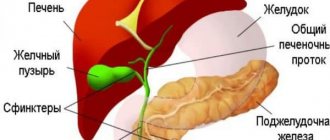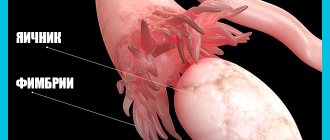Today, scientists are increasingly devoting more time to studying the role of magnesium in the body. Literally every day the knowledge base about this element increases. Researchers receive answers to questions that interest them, but at the same time, new ones arise related to the importance of magnesium for the body.
The lack of magnesium in the body attracts close attention. How this condition is characterized, what symptoms occur, how to diagnose a deficiency and how to compensate for it, what the lack of treatment leads to - the population must be informed about this to the maximum extent possible.
Common Causes of Magnesium Deficiency
There are many factors that cause a deficiency of this mineral in the body. Remember them and try to prevent the development of magnesium deficiency:
- Excessive amounts of proteins, fats and calcium in consumed foods, as well as abuse of fast food.
- Chronic stress.
- Drinking large amounts of coffee.
- A sedentary lifestyle or, on the contrary, too hard physical work.
- Alcohol abuse.
- Taking certain medications: hormonal contraceptives, steroids, antibiotics.
- Certain diseases: enterocolitis, dysbiosis, digestive disorders of various types with diarrhea and vomiting, endocrine disorders, cardiovascular pathologies.
- Periods of pregnancy and lactation.
- Rehabilitation after a serious illness.
Another important reason for the development of magnesium deficiency is the excess intake of calcium in the body.
How to treat magnesium deficiency
- First of all, it is necessary to exclude external factors that may indirectly affect the supply of vitamins and minerals to the body:
- avoid nervous and mental stress;
- increase consumption of foods rich in magnesium;
- adjust your medication intake.
- In some cases, drainage therapy is required - if there is an excess of toxic substances in the body, for example, nickel, cadmium, lead.
- You can replenish reserves with the help of magnesium-containing dietary supplements and medications such as magnesium citrate, magnesium aspartate, bischofite, and dolomite.
- Combination preparations that include B vitamins, in particular B5, will also help. Special mineral waters act similarly. It is especially recommended to take complexes of vitamins and minerals during menopause - they will relieve hot flashes.
- If the magnesium content is excessive, which is confirmed by laboratory tests, medications are discontinued and calcium is prescribed. Cobalt and manganese preparations can be used, and symptomatic therapy can be applied.
How to determine magnesium deficiency
It can be difficult for adult men and women to identify magnesium deficiency because the symptoms are similar to various diseases. First of all, a lack of a microelement is manifested by a feeling of fatigue and rapid fatigue. Also, without magnesium, hair begins to fall out, nails break, and caries develops. Immunity drops, and a person gets colds more often.
Later, with a lack of magnesium, a person becomes irritable and anxious. Depression may even develop. Sleep is disturbed, and even after a long rest a person does not feel rested. This leads to a drop in performance. Additionally, sensitivity to weather changes increases.
What causes shortages?
Various factors can influence the occurrence of magnesium deficiency. And there are quite a lot of them:
- unhealthy diet: be it a strict unbalanced diet or a passion for fast food, coffee and alcohol;
- overweight;
- exhausting physical labor;
- an abundance of stressful situations;
- passion for solarium and sauna;
- home or office “confinement”: insufficient exposure to fresh air;
- pregnancy and breastfeeding period.
A lack of magnesium in the body can also appear as a result of drug treatment with antibiotics, taking contraceptives, and after surgery using anesthesia.
Mg deficiency can be a consequence of another dangerous process - calcium excess. An excessive amount of the latter in this case stops its work and it simply stops being absorbed.
There may also be hereditary reasons for the lack of this element.
Signs of acute magnesium deficiency in the body
When magnesium deficiency reaches critical levels, the consequences become more serious. The concentration of calcium and potassium in the blood decreases, which contributes to hypokalemia. Severe pain in the head begins, ulcers appear in the mouth, and vision becomes cloudy.
Among the causes of death in people are heart disease and high blood pressure, and deadly pathologies include diabetes mellitus and Alzheimer's disease. All of them are directly or indirectly related to magnesium deficiency:
- frequent urination;
- constant thirst;
- slow healing bruises;
- dry skin and itching;
- causeless weight loss;
- tingling sensation and numbness of the limbs;
- frequent gum disease;
- Vaginal yeast infections are becoming more common in women.
What are the benefits of magnesium?
This element is extremely important for the human body.
Its influence is as follows:
- Necessary for full growth and strengthening of bones;
- Reduces high blood pressure, coordinates heart rhythm;
- Takes part in regulating blood glucose levels;
- Improves breathing in case of bronchitis, emphysema, chronic asthma;
- It is a preventative against joint and muscle pain, migraines, chronic fatigue syndrome;
- Normalizes the body's condition during PMS in women;
- Reduces the negative effects of chemotherapy and radiotherapy;
- Strengthens enamel, which promotes dental health;
- Prevents the deposition of calcium, stones (calcifications) in the kidneys and gall bladder.
Consequences of magnesium deficiency in children and pregnant women
The general symptoms of magnesium deficiency are discussed, but there are also special cases of how magnesium deficiency manifests itself in children or women expecting a child. To many people, this condition does not seem as dangerous as it actually is. In reality, in children, magnesium deficiency disrupts the process of calcium absorption, on which the formation and strength of bone tissue (skeleton, teeth) depends. Even if the microelement content is insufficient, the child’s cognitive function may be impaired, as a result of which the baby poorly perceives and assimilates the information received. Intellectual development is inhibited and communication abilities are impaired.
In pregnant women, a lack of magnesium, as with breastfeeding (breastfeeding), is also very dangerous. The fact is that during these periods the fair sex needs to consume vitamins and microelements for herself and her child.
A lack of magnesium stunts a baby's growth and development, making him susceptible to various infections in the future. Therefore, doctors often prescribe additional magnesium intake during pregnancy.
Magnesium deficiency is also dangerous for adult men. In advanced cases, a lack of magnesium can contribute to the development of impotence, and in women this condition is fraught with infertility.
Clinic and diagnosis of magnesium deficiency
The primary deficiency of magnesium in the body is manifested by convulsive syndrome, or so-called normocalcium tetany. As with ordinary tetany, the first signs of the disease appear during the neonatal period. However, very often there are no obvious symptoms of congenital magnesium deficiency. This causes progression of the disease, late diagnosis and treatment.
At first, the child becomes restless and cries often. If the lack of magnesium is not replenished in time, adults may observe twitching of some muscle groups, especially when influenced by provoking factors, for example, a loud sound. In severe cases and if left untreated, convulsive symptoms appear.
Signs of secondary deficiency appear at a later age. The general condition worsens - patients get tired quickly, it is difficult for them to get out of bed in the morning. When they wake up in the morning, they feel “broken” and not rested. Increasing the duration of sleep does not produce any results. When the weather changes, pain throughout the body, aches, and severe weakness appear.
The condition of the epidermis, as well as its derivatives, deteriorates significantly. Hair falls out and splits rapidly, nails become thin, split, and break. Teeth are susceptible to caries. The skin becomes dry, rough, and may crack in areas of increased keratinization - on the heels, elbows, and knees.
At the same time, signs of damage to the nervous system appear:
- patients' mood worsens for no reason;
- melancholy may appear;
- depressive disorders;
- anxiety;
- sleep is disturbed, nightmares are often tormented, patients may wake up sweating;
- headaches or dizziness appear that did not bother you before;
- indicators of intellectual activity deteriorate (memory and attention decrease, patients cannot complete the work they have started).
Since magnesium regulates the excitability of muscle fibers, when it is deficient, symptoms appear that indicate a violation of these processes - pain when tense, cramps in the calf muscles, back, arms, and feet.
Symptoms from the cardiovascular system are noteworthy. Pain in the heart appears, the heartbeat quickens, and arrhythmias may develop. Blood pressure is unstable, cholesterol levels rise, and atherosclerosis develops. Changes in the blood lead to an increased tendency to form blood clots.
Patients complain of constipation or diarrhea, abdominal pain arising from spasms of smooth muscle muscles. On the part of the respiratory system, bronchospasm is often a concern. Women report painful menstruation and increased premenstrual syndrome. Due to vasospasm, patients have difficulty keeping warm.
The diagnosis is made based on the patient's complaints, as well as by determining the concentration of magnesium in the blood. This indicator, depending on age, can range from 0.6 mmol/l in newborns to 1.1 mmol/l in adult patients. In old age, the concentration may decrease slightly.
Important! Even if the patient has symptoms indicating a lack of magnesium in the body, its concentration in the blood plasma may remain normal. What explains this? Everything is very simple. The fact is that blood contains, according to various sources, from 10 to 20% of all magnesium reserves in the body. The rest is in the cells. It is this substance that is consumed by the body and its deficiency is manifested by the development of the corresponding clinical picture.
Rules for preventing violations
We have found out why magnesium deficiency occurs and how it manifests itself, but what can be done to prevent this? To compensate or prevent magnesium deficiency, you need to take mineral complexes and focus on appropriate products.
It can be difficult to meet the body's needs with food. For example, the daily norm for a woman after 30 years is 320 mg, while 100 g of beef contains only 22 mg and 100 g of potatoes contains about 23 mg. So consider that you need to eat almost one and a half kilograms of one of these products, which is almost impossible.
Thus, the best prevention of deficiency is not only the inclusion of magnesium-containing foods in the diet, but also periodic courses of taking vitamin complexes. One of the options is the calcium + magnesium + zinc complex. These microelements improve each other's digestibility. Many other vitamin supplements are also sold in pharmacies.
Magnesium and potassium deficiency
Often there is a shortage of these two substances at the same time. Basically, the symptoms of both types of deficiency are similar, but potassium deficiency is also accompanied by:
- excessive dry skin;
- poor healing of even minor wounds;
- easy bruising;
- and in severe cases - ulcers and erosions on the mucous membranes.
Otherwise, the signs of hypokalemia are practically the same.
Therapy for a deficiency of both potassium and magnesium is carried out in the same way: the diet is enriched with foods rich in these substances; potassium and magnesium supplements are prescribed; If necessary, symptomatic treatment is carried out.
What are the causes of magnesium deficiency?
Unfortunately, most modern technologies for soil cultivation and all farming lead to the depletion of this important element. Additionally, soils are replenished with most conventional fertilizers: nitrogen, potassium and phosphorus, but people do nothing to replenish magnesium levels.
According to some sources, natural water was once a good source of magnesium, but is now:
Fluoride, which is found in drinking water, reacts with magnesium, creating a virtually insoluble mineral composition. It is stored in the bones without strengthening them. Their fragility and risk of fractures increases.
Water, in fact, can be an excellent source of magnesium if it is obtained from deep wells. Such water contains magnesium and other important elements.
Urban sources of drinking water, as a rule, are often supplied to us from surface waters. Even many bottled mineral waters have a fairly low magnesium content, but a very high concentration of calcium.
Additionally, there are some other bad eating habits you may have that can deplete magnesium from your body:
- caffeine consumption
- sugar consumption
- processed food consumption
- alcohol consumption
- consumption of products from depleted soil
- consumption of foods high in phytic acid
Additionally, medications such as birth control pills, hypertension medications, diuretics, insulin, and some antibiotics cause low magnesium levels in the body.
Also, excessive sweating that occurs during exercise can cause magnesium deficiency.
What does microelement deficiency lead to during pregnancy?
Magnesium plays a special role during pregnancy. During this period, its deficiency becomes dangerous for both the woman and her unborn child. The body will simply begin to take the amount of useful substance it lacks from bones and teeth, as well as endocrine glands. Those women who experienced magnesium deficiency complain about teeth damaged during pregnancy.
During the 9 months of waiting for a child, the need for Mg increases by 30% . It is important for the baby for the proper development of the musculoskeletal and cardiovascular systems. Otherwise, intrauterine developmental defects may occur.
In the early stages, the absence of a certain amount of the mineral is fraught with toxicosis and additional threats of miscarriage. In later cases – premature birth. The birth itself can be much more difficult with magnesium deficiency. The microelement is responsible for the elasticity of muscle fibers and their contractility. Without it, there is a high probability of rupture of the birth canal.
The effect of magnesium on the cardiovascular system and kidneys
Magnesium deficiency is very common in people with heart disease. Like any other muscle, the heart remains in a relaxed state when there is enough magnesium.
Magnesium ions relax muscle and nerve cells. With magnesium deficiency, an increase in calcium ions occurs.
If calcium accumulates in cells in excess, a disruption occurs in their functioning. Cell dysfunction can lead to angina, high blood pressure, asthma, atherosclerosis and arrhythmia.
Magnesium, a natural calcium antagonist. When heart muscle cells contain too much calcium, a life-threatening spasm called a heart attack can occur.
Thus, magnesium is an essential mineral for the integrity of the heart muscle and smooth muscle of the blood vessels.
People who eat foods rich in magnesium are less likely to suffer from kidney stones. Kidney stones form when excess calcium combines with oxalic, phosphoric and uric acid, forming oxalates, phosphates and urates, respectively.
Kidney stones are made from these salts. Magnesium removes excess calcium from the kidneys, preventing the formation of stones.












